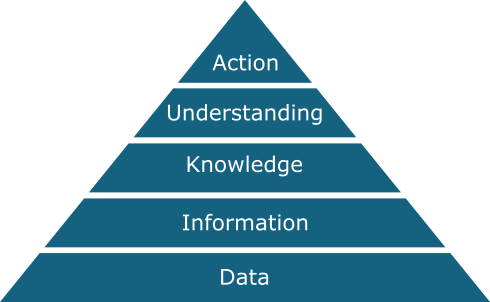UPDATE (September 2025):
Just 6 months after this article was published, the AI landscape changed. We were introduced to a user-friendly AI with an intuitive interface called ChatGPT. This, if anything, fueled the already growing interest in machine learning, and to date has resulted in companies investing hundreds of billions in bringing AI into their own organizations. A report from MIT recently pointed out that up to 95% of AI projects fail to deliver value — something that comes as no surprise to us. One of the main reasons behind this is that many companies chase trends without actually having a strategy for how new technologies should create value for them. Many of the themes we raised back in 2022, before the modern AI race truly began, still apply in exactly the same way, and I therefore recommend that all decision-makers interested in AI read our original article.
Introduction
We are now firmly in the twenties and have left a decade of advances within technology and advanced analytics. A decade in which the promise of data has been proven. But also a decade in which many have failed to realize the potential of data within their own company. In this article we will address the pitfalls & share our knowledge on why we believe the following are essential to succeed in becoming data-driven:
- a digital transformation strategy;
- a digital transformation team;
- a clear & concise roadmap; and
- a plan for closing the skill gap
The Good Stories
We are now living in the information age. Daily we are experiencing the overwhelming effects that endless streams of data have on us. From facial recognition and home assistants, to personalized advertisements and movie recommendations. Everyday people are finding innovative ways to use data and technology, and it is having and will continue to have a profound effect on our lives and on every business.
Companies such as Google and Facebook, are immediately associated with data, and recognized for their ability to capitalize on it. Data is their business. According to Investopedia these relatively young companies are now some of the largest companies the world has ever known.
Other large enterprises like IKEA, Maersk, and Wallmart, have in the last decade been through digital transformations. Many of them are now widely regarded as being data-driven. But not all transformations are successful.

Data Maturity
Unfortunately many attempts at becoming data-driven have been plagued by over-ambitious and unrealistic goals of making data work right away. We call this data immaturity. Data immaturity is many things, but most often it is characterized by these problems:
- No digital transformation strategy
- IT infrastructure with data silos and inaccessible data
- Poor data governance & data management
- Manual business critical data processing steps
- A lack of experience within modern technology
- A general lack of understanding why a digital transformation is necessary and what that means
In a field steaming with buzzwords and where every company wants to market themselves as being high-tech, data immaturity often means that companies rush into huge data projects with inexperienced people, leading to poor results. This sheds a negative light on the possibilities of using data. In the worst case, these companies never complete their transformation, and are left behind by those who do.
How to Succeed
So how does one succeed? The digital transformation journey is not going to be the same for any two companies. But to generalize, we believe that there are four topics that are essential.

Strategy: Efficient & Meaningful Transformations
Data can create value in many ways, like creating a more holistic customer journey, giving greater product transparency, optimizing product quality and much more. But not everyone knows how and what to use data for. In the long run having a well governed modern infrastructure, with a focus on high quality and reliable data, will be essential. But in the short-term it isn’t going to be necessary for all businesses.
 The data-action pyramid. It is essential to understand that for data to be actionable it is necessary to first qualify as information. The information can lead to knowledge, which in turn can lead to understanding. It is first when we understand, that we can act.
The data-action pyramid. It is essential to understand that for data to be actionable it is necessary to first qualify as information. The information can lead to knowledge, which in turn can lead to understanding. It is first when we understand, that we can act.
If you are having difficulties describing how your business can make use of data, or why a data transformation is necessary, then you might need the assistance of data experts. Together with your business experts, data experts would be able to help you develop your digital transformation strategy. The strategy is what will ensure that your journey to become data-driven will succeed.
Team: Committing to the Strategy
With a digital transformation strategy, it is vital for the success of the journey that it is emphasized as a corporate focus point, and that someone takes ownership. We suggest that a team consisting of people from across the company and across functions is put together, possibly with the assistance of externals if necessary.
They will be responsible for developing a challenge map, a subsequent roadmap, and ensuring that the company is executing on the most relevant projects described in the plan. The team could include top-level managers, or should report directly to one or more. Top management will be the owners of the journey as a whole. It is their responsibility that progress is moving along as planned by the digital transformation team.
Roadmap: Working Smarter
With a cross functional team of business & IT experts put together, the main focus is to develop a challenge map. The challenge map should:
- Discover the needs of your business
- Define the requirements of those needs
- Uncover the risks associated with the needs and requirements
Mapping out this information is necessary for the development of a roadmap. The roadmap will then guide the selection, development, and implementation of projects that move you towards becoming data-driven.
Skill: Closing the Skill Gap
With a clear roadmap, you need to make sure that you have the capability to execute on the specified projects. Often this will require you to close the skill gap, which can be done in many ways. Some can afford to hire a new team. Others are lucky enough to have the right mix of people within their organization. Some might even want to have it all developed by IT consultancies.
In most cases we suggest you make use of a data expert. Someone who can guide you towards the most relevant projects, and help you find the right people to get started. Ideally this person is already part of your digital transformation team.
Getting Assistance
Whether you are just starting on you digital transformation journey, or it is already underway, it’s important that you evaluate the need for an experts insight. Data transformation journeys can be complex, and it isn’t always clear what the best path to success is.
 Credit goes to Matt Turck, at https://www.mattturck.com who has compiled this overview, along with a comprehensive review of the landscape. (high resolution version)
Credit goes to Matt Turck, at https://www.mattturck.com who has compiled this overview, along with a comprehensive review of the landscape. (high resolution version)
Often companies spend months getting nowhere because they are unsure of how to proceed. Getting assistance from a consultancy is something you should consider as the success of this journey might be what ensures that your company survives, and even thrives in the future. If you are unsure how to proceed on any of the steps, feel free to reach out, and we can have a discussion on how we might assist you.
Conclusion
Data and the capabilities to act on data, will be essential for companies to succeed in the future. This success relies on data that is available, reliable, accessible, actionable, and accountable. This is what it means to be data-driven, and starts with a digital transformation. Here are some key takeaways to remember from this article:
Start with a strategy: Start by formulating a strategy that describes how your data can create value for you and your customers.
Create company wide transparency about the digitization strategy: Less friction means faster results!
Get a good start: Without a clear plan and the right team, becoming data-driven is going to be difficult. A well-defined roadmap and the right mix of skills and business expertise will ensure that you are ready to execute on the right tasks from the start.
Seek assistance: Remember to be honest about your data maturity and reach out if necessary.
